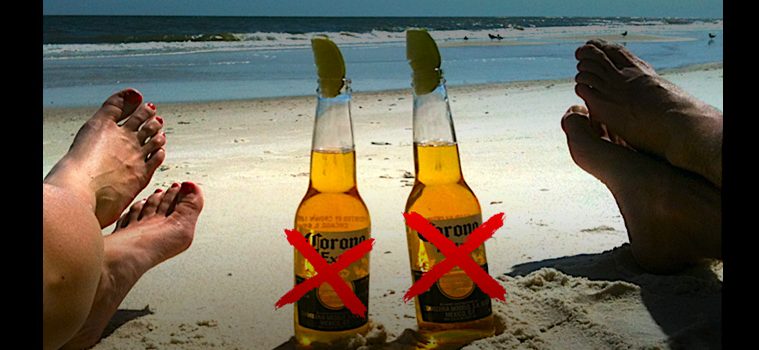HANGING OUT WITHOUT THE HANGOVER –
June 24, 2021 – One year into the coronavirus pandemic, after months of gaining weight and feeling groggy, Mayra Ramirez stopped drinking. And this summer, she’ll mark a new milestone for her sobriety: a completely alcohol-free vacation.
Ms. Ramirez, 32, spent the first 12 months of the pandemic working remotely from a tiny Brooklyn apartment, drinking every weekend and many weekday evenings as well. In March, like many others during this hard year, she realized her drinking was spiraling beyond the merely social kind. She has now been sober for three months. So when she began scouting locations for a break with a few non-sober friends, she suggested Sedona, Ariz., where they all will hike and wake up early, and she will avoid potential pitfalls like nightclubs and beachfront bars.
Many Americans turned to alcohol to blunt the stress, isolation and fear of the past 15 months: An October study in JAMA Network Open, the journal of the American Medical Association, found that Americans were drinking 14 percent more than in the previous year. Now, as vaccination levels rise and Americans head back to the roads and skies, sober travel, a subset of vacations once relegated only to 12-steppers and recovering addicts, is going mainstream.
Ditching the drinks
In a June poll of more than 23,000 people by Branded Research, 29 percent of respondents said they planned to take an alcohol-free trip after the pandemic. Forty-seven percent of the respondents to American Express’s Global Travel Trends Report in March said that wellness and mental health were among their top motivators for travel in 2021, and an analysis of social media chatter from Hootsuite, a social-media management platform, showed mentions of the term “sober vacation” jumping more than 100 percent over Memorial Day weekend. Even airlines are going dry: After banning booze in the cabin in 2020, several airlines are postponing a return to serving alcohol thanks to unruly passengers.



